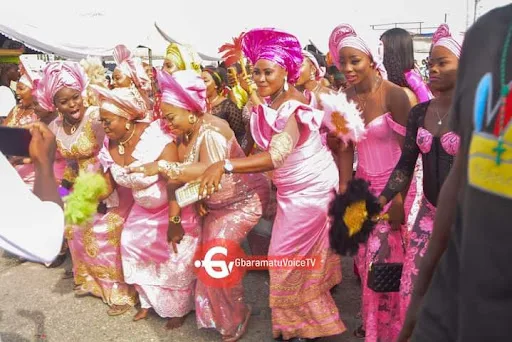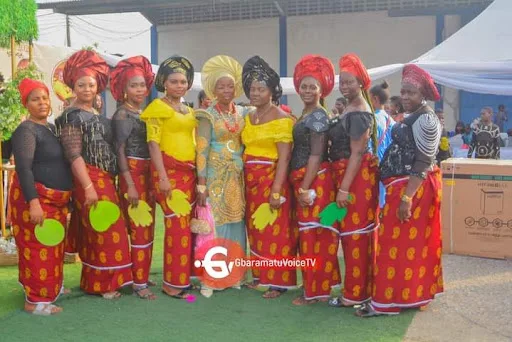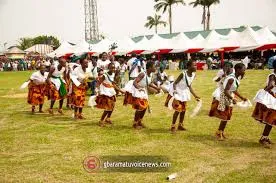Indomitable-Spirit-of-the-Ijaw-People
Indomitable Spirit of the Ijaw People
Introduction
The Ijaw people, an ethnic group native to the Niger Delta in Nigeria, exemplify resilience, determination, and a rich cultural heritage that has endured for centuries. This article explores the indomitable spirit of the Ijaw people, highlighting their history, culture, struggles, and ongoing contributions to the socio-economic landscape of Nigeria. The Ijaw's ability to navigate challenges while maintaining their cultural identity speaks volumes about their tenacity and strength.
Historical Context
The Ijaw people are one of the oldest ethnic groups in Nigeria, with a history that dates back thousands of years. They predominantly reside in Bayelsa, Delta, and Rivers states, with significant populations in Ondo, Edo, Akwa-Ibom and Cross River states. Historically, the Ijaw were known for their skills in fishing, navigation, and trade, which were facilitated by their strategic location along the Niger Delta's waterways. Their early interactions with European traders in the 15th century marked the beginning of a complex relationship characterized by trade, conflict, and eventual colonization.
Cultural Heritage
The cultural heritage of the Ijaw people is rich and diverse, reflecting their deep connection to the riverine environment. Traditional Ijaw society is organized into clans, each with its distinct customs and governance structures. The Ijaw's spiritual beliefs are deeply rooted in their environment, with a pantheon of gods and goddesses associated with water, land, and ancestors. Festivals, music, dance, and oral literature are integral to Ijaw culture, serving as mediums for preserving history and fostering community bonds.
Festivals and Rituals
One of the most significant festivals among the Ijaw is the "Ibiebeleu" or masquerade festival, which honors the spirits and seeks their protection. This festival involves elaborate costumes, music, and dance, showcasing the community's artistic talents and spiritual devotion. Other notable festivals include the "Owu-Aru-Sun," a traditional mourning ceremony for deceased elders, and the "Amaseikumor," a celebration of fertility and prosperity.
Music and Dance
Ijaw music and dance are vibrant and dynamic, reflecting the community's experiences and emotions. Traditional musical instruments include drums, gongs, and the "ozobo" (a type of xylophone). Music and dance are integral to Ijaw ceremonies and social gatherings, serving as a means of communication and expression. The "Ijaw Ebiere" dance, for instance, is performed during festivals and depicts the joys and struggles of the Ijaw people.
The Struggle for Autonomy and Justice
The Ijaw people have a long history of resistance against external domination, from colonial rule to post-independence marginalization. The discovery of oil in the Niger Delta in the 1950s brought significant economic benefits to Nigeria but also led to environmental degradation, displacement, and socio-economic challenges for the Ijaw people. The struggle for resource control and environmental justice has been a defining aspect of the Ijaw's modern history.
Environmental Degradation
The oil industry has had a devastating impact on the Niger Delta's environment, with oil spills, gas flaring, and pollution severely affecting the region's ecosystems and the livelihoods of its inhabitants. The Ijaw people's traditional occupations, such as fishing and farming, have been disrupted, leading to economic hardship and social unrest. Despite these challenges, the Ijaw have remained resilient, advocating for their rights and seeking redress through legal and political channels.
The Kaiama Declaration
In 1998, Ijaw leaders issued the Kaiama Declaration, a seminal document that articulated their demands for self-determination, resource control, and environmental justice. The declaration called for an end to the exploitation and marginalization of the Ijaw people and emphasized the need for sustainable development in the Niger Delta. This marked a turning point in the Ijaw struggle, galvanizing support from other ethnic groups and civil society organizations.
Contemporary Challenges and Achievements
Today, the Ijaw people continue to face numerous challenges, including poverty, unemployment, and inadequate infrastructure. However, they have also made significant strides in various fields, contributing to Nigeria's cultural, economic, and political landscape.
Education and Leadership
Education has been a critical tool for the Ijaw people in their quest for empowerment and development. Several prominent Ijaw individuals have made notable contributions in academia, politics, and business. For instance, Goodluck Jonathan, an Ijaw from Bayelsa State, served as Nigeria's President from 2010 to 2015. His tenure highlighted the potential of the Ijaw people to contribute to national leadership and governance.
Economic Empowerment
Efforts to promote economic empowerment among the Ijaw include initiatives to develop local industries, support entrepreneurship, and improve infrastructure. The establishment of the Niger Delta Development Commission (NDDC) and the Ministry of Niger Delta Affairs are steps towards addressing the region's developmental challenges. Additionally, various non-governmental organizations and community-based initiatives are working to create sustainable livelihoods and enhance the quality of life for the Ijaw people.
Conclusion
The indomitable spirit of the Ijaw people is a testament to their resilience, cultural richness, and unwavering pursuit of justice and development. Despite facing historical and contemporary challenges, the Ijaw have preserved their cultural identity and continue to make significant contributions to Nigeria's socio-economic fabric. Their story is one of strength, perseverance, and hope, serving as an inspiration to other marginalized communities around the world. The future of the Ijaw people, while fraught with challenges, holds promise for growth, empowerment, and a more equitable society.





















Comments